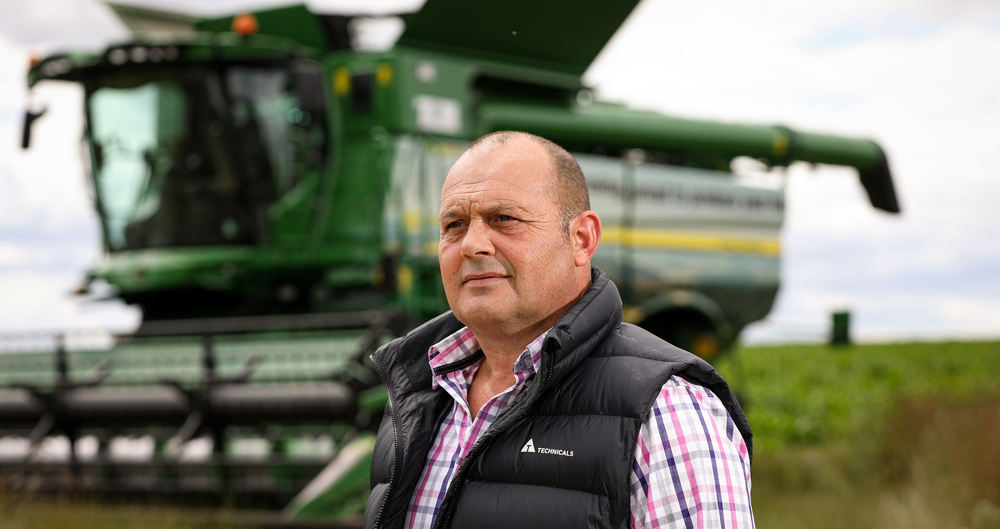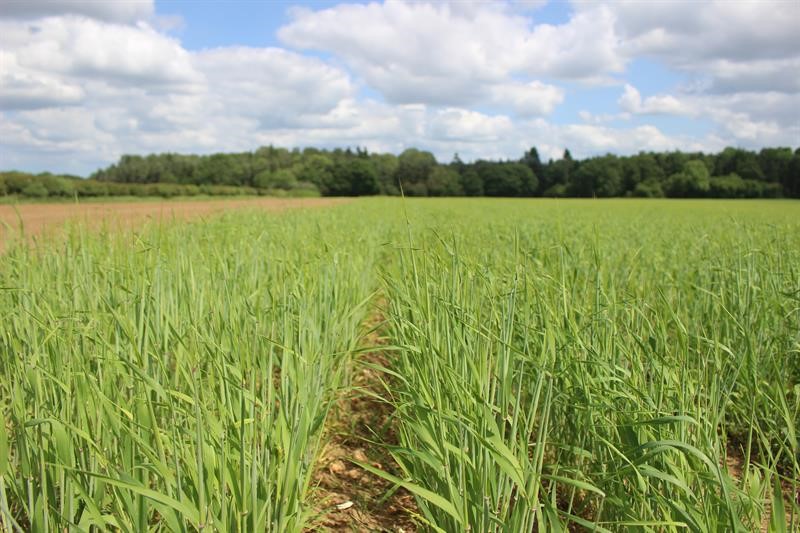Much of the confusion surrounding the Environment Agency's recent RPS stems from the uncertainty over how the EA is interpreting a crop's need for nutrients. The Farming Rules for Water do not explicitly say autumn applications of organic manure must be timed to meet an autumn crop need. However, it seems the Environment Agency has taken the position that summer and autumn-applied manures, whether low in readily available nitrogen (RAN) or not, are a diffuse-pollution risk.
Therefore, unless the crop has an immediate requirement for nitrogen, growers must take steps to avoid spreading at this time of year, except for crops such as oilseed rape, or grass.
The NFU continues to argue that a blanket approach and interpretation of applying organic manures like this is wrong. It fails to take into account practicalities, or the multitude of benefits, including good soil, nutrient and resource management.
Under Farming Rules for Water, it's what's commonly referred to as Rule 1 that is most relevant to the current situation.
Rule 1 says that farmers must plan their nutrient applications to meet a crop or soil need, and ensure they do not create a significant risk of diffuse pollution when applying organic manures.
Problems occur when we consider the uncertainty around the timing of what the Environment Agency means by crop or soil need, or definitions of diffuse pollution, for that matter.
At the recent NFU Live Event, the Environment Agency claimed it had issued the RPS to try to make the application of organic manures easier this autumn for people who might otherwise have struggled to comply with Rule 1.
That might have been the intention, but sadly I struggle to see how what’s been published does that.
Issues with the RPS
The RPS begins by saying that if you follow the conditions of the RPS, you can plan to apply organic manure to agricultural land that may exceed the needs of soil or crop on that land in some circumstances.
However, the RPS also states you must undertake a contingency plan, and this must contain the following to prove spreading in the autumn was the only option. You:
- Cannot store organic manure at a place of production
- Cannot store at place of use
- Cannot send off site to anaerobic digestion plant or effluent treatment work
- Cannot store the organic manures off site
- Can spread on land with low risk of leaching and run off.
Once you have read the guidelines on the above and complied with the five points, you must make your staff and contractors aware of the contingency plan. You must also consider whether you can 'work with neighbouring farms to create a contingency plan' (whatever that means).
Further restrictions
You must also comply with restrictions on how you spread organic manures. You must:
- Spread only on land with low risk of leaching and run off (noting not to spread on slopes of eight degrees or more, which haven't been subsoiled or mole ploughed)
- Use an application rate to ensure no more than 5kg/ha of nitrate will leach
- Only spread when weather and ground conditions allow.
Consequences of the flawed RPS process
Having gone through all of the above, you must then use the RPS to inform the EA of your intention to apply organic manures and, I assume, wait for inspection.
This whole process is ambiguous, long-winded, confusing and impractical. It will lead growers to make poor decisions while fearing draconian inspections and possible court actions and hefty fines
The process flies completely in the face of Defra's drive and advice to growers in regards to increasing soil organic matters, improving soil health, and reducing our reliance on manmade fertilisers.
It's an example of silo thinking within government and between the Environment Agency and Defra. If not changed, the approach will force farmers into over-winter storage and spring spreading, when there will be increased risks of spreading in poor conditions, especially if we have a wet winter.
Your NFU Farming Rules for Water RPS Flowchart
We have produced a flowchart to help answer members' questions about the RPS and whether organic manures can be applied this autumn.
Download the flowchart: (you will need to log in)
- Farming Rules for Water EA RPS flowchart (long version)
- Farming Rules For Water EA RPS Flow Chart (A4 printable version)
How to log in: Use your membership number or the email address associated with your membership. If you've forgotten your password, use this form to reset it or contact NFU CallFirst on 0370 845 8458.
Growers will have to change their crop rotation plans and accommodate spring crops (often with lower margins) just to justify organic manure on their land, and this assumes that weather windows in the spring allow timely spreading and crop establishment.
If this isn’t possible, what happens to the manure that is stored in the field? Farmers and growers cannot spread it in the following summer and will have to wait for the next available spring crop. Utter madness!
But it’s not just about nutrients. Farmers must be able to retain the ability to address soil health, organic nutrient applications and soil organic matter increases, without having to follow misguided, impractical, ambiguous rules that are open to so much interpretation.
Why should we have to rely on manufactured fertilisers?
My own experience of using solid and liquid digestate shows how they have benefited my soils. By using them, we have achieved organic matter levels up to 8%, while completely ruling out the need for manufactured phosphorus (P) and potassium (K) fertilisers and reducing the amounts of applied nitrogen (N).
In conjunction with proper nutrient management planning, I have managed to do this without damaging soils by applying robust rates of organic manures ahead of nutrient-hungry autumn forage crops.
At this moment in time, looking at the RPS I am now struggling to justify this good practice and fear that I will not be able to maintain the good progress I have made.
Further environmental impacts
The draconian interpretation of Farming Rules for Water and the RPS also has the potential to be bad for the environment in other ways, and detract from our ability to use resources efficiently.
An ideal balance of carbon and nitrogen in the soil is about 24 units of carbon to one unit of nitrogen. Too much, or too little of either means a reduction in how efficiently nutrients are used, and for many farmers organic manures play a crucial role in addressing this.
Depriving soils of organic material will lead to poorer carbon and nitrogen efficiency. We have been trying to talk to Defra about this for a long while.
We need a clear way forward
It is now time for all stakeholders to come together and form a practical, evidence-based, clear way forward, which allows farmers to plan and apply manures and organic nutrients without fear of falling foul of current rules.
The current confusion is causing stress and anxiety for growers at the worst possible time of year. We continue to offer a dialogue on improving this situation in future years, but the Environment Agency must change the approach it has adopted this year, and quickly.

